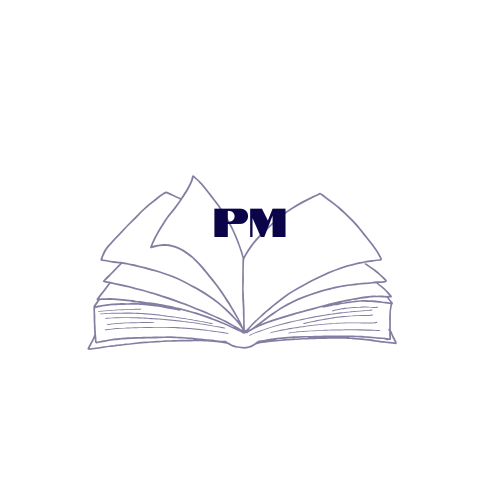Keeping teams on track isn’t easy. Project managers juggle changing demands, tight deadlines, and complex workloads every single day. Without solid time tracking, even the best-laid plans can unravel fast.
Accurate time tracking for project managers brings order to that chaos. It gives sharp insight into where hours go, helps control costs, and highlights gaps before they turn into setbacks. Getting this right means projects finish on time and budgets stay in check.
Mastering time tracking is more than a skill—it’s a core part of leading projects with clarity and confidence. For those seeking the right digital tools, it’s worth exploring the essential project management software features overview to find solutions that help managers and teams stay focused and deliver results.
Why Accurate Time Tracking Matters in Project Management
For project managers, success depends on more than a well-drawn schedule. Time tracking is the steady compass that keeps teams pointed toward their goals. Without clear records, it’s hard to show where the hours go, which tasks slow the team down, or how work fits the bigger picture. When clients expect results and budgets are tight, every minute counts. Tracking time accurately not only protects the bottom line but also builds trust inside the team and out.
Let’s look at how precise time tracking helps with budget management, productivity, and team morale.
Improving Budget Management and Cost Control
Accurate time tracking gives project managers real numbers, not guesses. When you know how long each task takes, it’s easier to price projects and stick to budgets.
- Prevents Overruns: Budget overruns often start small. By logging hours daily, you’ll see early signs if work is taking longer than planned, so you can make quick changes.
- Real-Time Insights: Keep your finger on the pulse of labor costs. Compare planned hours to actual time and adjust resourcing or project scope while there’s still room to spare.
- Clear Client Communication: Give clients detailed timelines and honest estimates backed by data. This approach not only sets reasonable expectations but also helps protect profits.
Establishing solid time tracking practices helps you manage costs, meet client needs, and keep projects profitable. For more, take a look at the Critical Role of Project Management in IT Projects, which shows how tight planning and budget control work together for project success.
Raising Productivity and Accountability
Teams thrive when they know what’s expected and how their work adds up. Reliable time tracking is a simple but powerful tool for getting there.
- Removes Guesswork: With clear records, team members focus on the right work instead of guessing what’s most important or worrying about missed deadlines.
- Spot Roadblocks Early: Patterns of overtime, missed deadlines, or gaps in work become visible fast. You can spot and fix problems before they spread.
- Boosts Responsibility: When hours are tracked, everyone knows they’re part of the bigger outcome. Each team member can see how their effort moves the project forward.
Solid time tracking habits help turn individual effort into team success. To learn more about how you can measure your team’s impact, see these effective project success measurement methods.
Strengthening Team Communication and Morale

Photo by Christina Morillo
Open sharing of time data leads to honest conversations and stronger teams.
- Removes Hidden Stress: When everyone sees how work is scheduled, it cuts down on misunderstandings and hidden workloads.
- Supports Fairness: Transparent time tracking means every team member’s contribution is visible. No more wondering if someone’s work is overlooked or unappreciated.
- Builds Team Spirit: When your team knows their efforts are recognized and valued, morale grows. It brings a sense of ownership and pride in each project.
Great communication and fair treatment can make or break a project. Check out key project management skills for 2025 to discover more on building trust and connection in your project teams.
Key Features to Look for in Time Tracking Solutions
Choosing the right tool for time tracking for project managers comes down to more than making sure everyone clocks in and out. The best tools work quietly in the background, capturing hours, reporting progress, and helping teams get paid without stoppages. A strong time tracking solution should speed up the process, spark transparency, and give project managers everything they need in one view.
Automation and Smart Timesheet Capture
Nobody wants to fill in spreadsheets on Friday night, especially after a full week of moving projects forward. Look for systems that offer:
- Automatic timers: Start and stop with a click, saving every minute you spend on a task.
- Mobile and desktop sync: Log hours on the go—from your phone during a site visit or at your desk between meetings.
- Calendar integration: Turn scheduled events, meetings, and deliveries into time entries without extra work.
These features save hours lost to manual entry and reduce the chance of forgetting work. Fewer errors mean clearer billing for clients and fewer disputes.
Real-Time Data and Customizable Reporting
Project managers can’t afford to wait until the end of the week to find out that things are off track. Solutions with real-time data give power to act fast.
- Instant dashboards: Know at a glance who’s working on what, where time is slipping, and which deadlines are safe.
- Custom reports: Pull exactly the information you need—by team member, project phase, or client.
- Email or app notifications: Get alerts when budgets are close or overtime adds up.
When issues pop up, fast reporting tools put numbers right at your fingertips. You control the details—project managers can zoom from a bird’s-eye view straight down to daily task tracking. Teams stay on the same page, and everyone knows how close they are to finishing strong.
Integrations with Project and Payroll Systems
Nobody wants a tool that stands alone or creates more steps in each process. Integration is key for smooth daily work:
- Project management sync: Import deadlines, milestones, and tasks from your favorite PM software so work and tracking stay together.
- Payroll connections: Export hours directly to payroll so everyone gets paid without extra emails or forms.
- Invoicing tools: Link tracked time to client billing for fast, accurate invoices that clients trust.
Solid integration keeps information flowing and means less double entry. Teams spend more time on actual work, not busywork. When a time tracking solution connects the dots, you get accurate records, happy teams, and fewer headaches at month’s end.
Top Time Tracking Tools for Project Managers in 2025
Selecting the right tool for time tracking for project managers can transform long days of guesswork into smooth, detailed reports and simple team check-ins. The best solutions offer more than digital punch clocks. They provide mobile access, intelligent automations, and accurate records that support productivity—wherever your team works. Here’s a guide to stand-out options in 2025, organized by what matters most for each team type and size.
Easy-to-Use Tools for Hybrid and Remote Teams

Photo by Thirdman
Hybrid and remote project teams need tools that keep everyone in sync, no matter where they clock in. Modern time tracking apps bring convenience to laptops, phones, and tablets. The leading apps in 2025 keep things simple but powerful:
- Toggl Track: With a clean layout and no learning curve, Toggl lets users start and stop timers from any device. It offers browser extensions and deep integrations with popular project platforms.
- Harvest: Known for its visual reporting and easy invoicing, Harvest fits teams that need both work analytics and fast payment processing.
- Clockify: A top pick for teams growing fast. Clockify allows unlimited users, projects, and time entries—free of charge. Built-in features like tagging, calendar syncing, and easy time audits keep things streamlined.
- Everhour: Trusted for its direct integration with platforms like Asana, Trello, and ClickUp. Team leads can set budgets and receive alerts as projects progress.
Most of these tools offer one-click timers, daily reminders, flexible permissions, and useful dashboards. GPS check-ins and AI-based task categorization are also on the rise, adding another layer of precision and transparency.
Solutions for Field Work and Construction Projects
Field teams—like those in construction, utilities, or facility services—face unique hurdles. They’re juggling shifting job sites, irregular hours, and complex compliance needs. Modern time tracking for project managers in these industries means rugged mobile apps with offline capabilities, GPS location tracking, and expense capture in real time.
Popular choices in 2025 include:
- TSheets by QuickBooks (now QuickBooks Time): Offers GPS tracking that logs job site arrival, break times, and departure. Workers use the mobile app for clock-in/out, and managers see live data on who’s on-site and project spend.
- Hubstaff: Combines geo-fencing, idle time detection, screenshot monitoring, and automated payroll integrations. Field supervisors get alerts if team members are away from designated work areas.
- Connecteam: Custom-built for deskless teams, Connecteam provides simple scheduling, real-time chat, and digital forms for compliance reporting, all alongside slick time tracking.
- ExakTime: Designed for rugged use, ExakTime works offline, collects photo ID verification, and supports compliance for union and labor laws.
Trending features here are touchless clock-ins, mileage tracking for technicians, and compliance reporting that saves project managers hours of paperwork each week.
Best All-Around Platforms for Small and Mid-Sized Teams
Small and mid-sized groups often want a single tool that does it all—track time, measure productivity, manage budgets, and generate reports without steep learning curves. The best solutions allow for quick setup, strong reporting, and growing feature sets as needs change.
Recommended platforms for 2025 include:
- ClickUp: Unifies time tracking with task management. You get built-in timers, manual time entry, and reporting dashboards. Its customization options let each team build their perfect workflow.
- Monday.com: Powerful for bringing time tracking right into the project table. Dashboards show resource allocation, deadlines, and tracked hours at a glance. It also stands out for integrations and automation options.
- Wrike: Offers advanced tracking tied directly to project tasks and phases. Teams can automate recurring work, set baselines for budgets, and receive visual updates in real time.
- Zoho Projects: Cost-effective for teams that want robust core features: time sheets, billing, Gantt charts, and mobile apps. It scales with your business, thanks to flexible pricing and add-ons.
Platforms in this space are investing in AI-driven work categorization, mobile-friendly dashboards, and seamless sync with payroll and billing tools—freeing project managers to focus more on people than paperwork.
Conclusion
Adopting time tracking for project managers reshapes how teams work and deliver results. The right tool brings clarity, turning uncertainty into planned action and missed hours into new chances for growth. Start by looking at where your team spends time today, then pick a tool that fits real needs—not just flashy features. Testing a system for a few weeks can show what works best for your workflow.
Intentional time tracking does more than improve numbers. It brings calm to the chaos of project work and helps project managers stand tall amid shifting demands. Take this step to sharpen your project management skills and lead your team with confidence day after day.
Ready for your next move in project leadership? Explore more strategies and insights on the PMPlaybook Blog to fuel your growth and help your team reach new levels of success.
Thank you for reading. Reflect on your current tools, share your feedback below, and keep aiming higher.

Leave a Reply